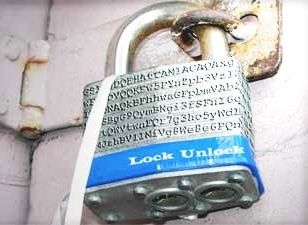The Dutch government has pledged not to weaken encryption by forcing technology companies to hand over encrypted communications to intelligence agencies.
The stance is in marked contrast to the United States and United Kingdom, both of which want tech firms to install ‘backdoors’ to help in the fight against terrorism.
Dutch Refusal
Following the Paris terrorist attacks last year, the government in the Netherlands conducted a review of its policies to determine whether it needed to alter positions.This review concluded that “restrictive” measures would put citizens at risk.
In a letter published this week (in Dutch), the Dutch Ministry of Security and Justice admitted that there were arguments for and against “strong encryption”.
 The executive cabinet endorsed “the importance of strong encryption for Internet security to support the protection of privacy for citizens, companies, the government, and the entire Dutch economy,” Ard van der Steur, the Dutch minister of security and justice, wrote in a statement translated by The Daily Dot.
The executive cabinet endorsed “the importance of strong encryption for Internet security to support the protection of privacy for citizens, companies, the government, and the entire Dutch economy,” Ard van der Steur, the Dutch minister of security and justice, wrote in a statement translated by The Daily Dot.
“Therefore, the government believes that it is currently not desirable to take legal measures against the development, availability and use of encryption within the Netherlands,” said van der Steur.
Encryption Backdoors
British Prime Minister David Cameron is among those who want an encryption backdoor. The Manhattan District Attorney has also recently demanded weaker smartphone encryption.
President Obama wants to access to encrypted messages, and he has previously asked tech companies to allow the government to break that encryption when necessary. That said, the White House recently backed down on the matter.
It came after a furious response from leading technology companies and privacy campaigners, who have consistently opposed efforts to weaken encryption systems.
Last June a number of leading technology companies including Google, Apple, IBM, Microsoft and Facebook wrote a strongly-worded open letter to President Obama, calling for him to respect the privacy rights of consumers by not weakening encryption systems.
Yet pressure from law enforcement remains. Last year the chief for Europol said the increasing prevalence of encrypted Internet communications presents a major difficulty for law-enforcement and national security efforts.
US law enforcement have also previously complained that encryption can prevent the FBI and the Department of Homeland Security from examining data during investigations.
The leading counter-terrorism policeman in the UK has also previously said that some tech firms are helping militants avoid detection by developing systems that are “friendly to terrorists”.
Whether the intelligence agencies actually need backdoors to encrypted messages is something of a moot point however. It is thought the NSA and GCHQ already has the supercomputing power to crack 512-bit encryption in just a few minutes.
And the NSA is widely believed to be capable of breaking 1024-bit encryption as well.
Can you protect your privacy online? Take our quiz!





